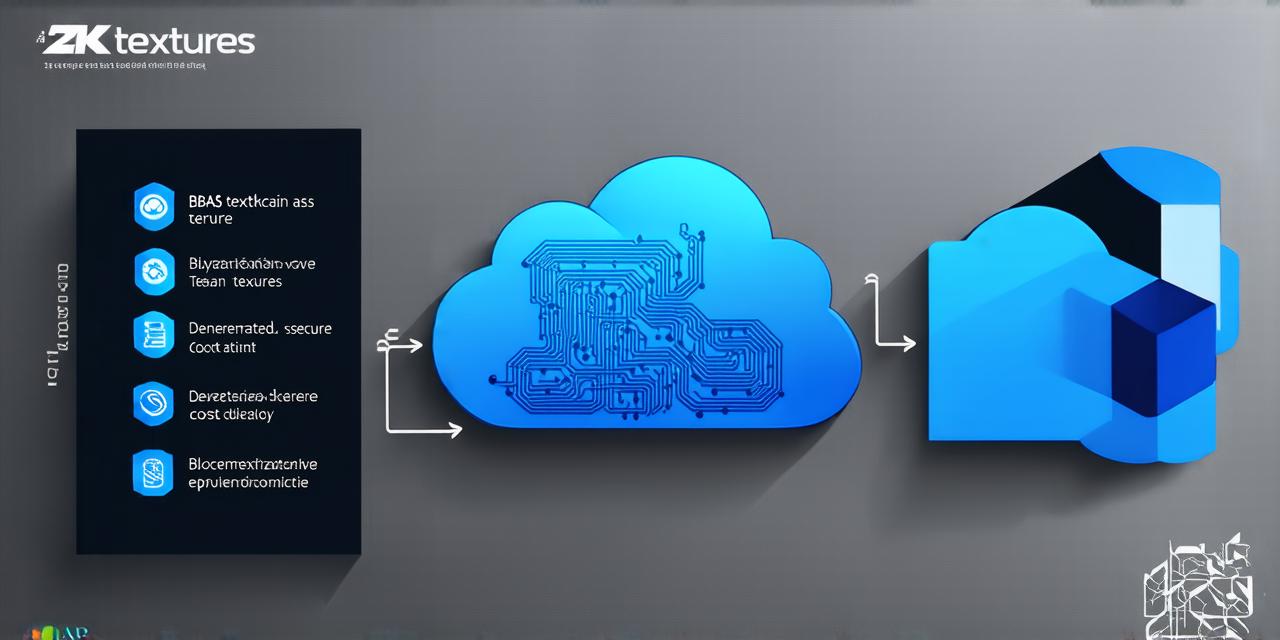Blockchain technology is rapidly gaining traction across various industries, from finance to supply chain management. With its decentralized and secure nature, blockchain has the potential to revolutionize how data is shared and stored, making it an attractive option for businesses looking to improve their operations and security.
However, building a blockchain solution can be complex and time-consuming, requiring specialized skills and resources. This is where Blockchain as a Service (BaaS) comes in.
What is Blockchain as a Service (BaaS)?
At its core, BaaS provides access to a fully functional blockchain network that can be easily integrated into existing systems and applications. This enables users to build and deploy decentralized applications (dApps) without the need for extensive infrastructure or technical expertise.
Advantages of Blockchain as a Service (BaaS)
There are several advantages to using BaaS for blockchain development. Firstly, it eliminates the need for businesses or individuals to manage their own infrastructure, reducing the time and resources required to set up and maintain a blockchain network. This enables organizations to focus on developing their applications and use cases without getting bogged down by complex technical details.
Secondly, BaaS providers typically offer scalable solutions that can handle large volumes of transactions, making it an attractive option for businesses looking to build enterprise-grade blockchain systems. Furthermore, BaaS providers often have established security protocols in place, which can help to mitigate the risk of cyber attacks and data breaches.
Thirdly, BaaS allows for greater flexibility and customization when building dApps. Developers can choose from a range of features and services provided by their BaaS provider, allowing them to tailor their solutions to meet their specific needs.
Real-Life Examples of Blockchain as a Service (BaaS) in Action
There are numerous examples of businesses and organizations using BaaS for blockchain development. One such example is Microsoft’s Azure Blockchain service, which provides a range of features and services for building and deploying dApps. Another example is Ethereum, an open-source platform that enables developers to build decentralized applications using smart contracts.

Case Study: A Supply Chain Management Solution Built on BaaS
A supply chain management company used BaaS to develop a blockchain solution for tracking the movement of goods through their supply chain. The solution enabled the company to improve transparency and traceability, reducing the risk of fraud and improving customer satisfaction. By leveraging BaaS, the company was able to focus on developing their application without having to manage their own infrastructure.
Summary: Blockchain as a Service (BaaS) is a Powerful Tool for Blockchain Development
In conclusion, BaaS provides businesses and organizations with a powerful tool for building and deploying decentralized applications using blockchain technology. By leveraging BaaS, organizations can focus on developing their applications and use cases without having to manage their own infrastructure, reducing the time and resources required to set up and maintain a blockchain network. With its scalability, flexibility, and security features, BaaS is an attractive option for businesses looking to build enterprise-grade blockchain systems.
